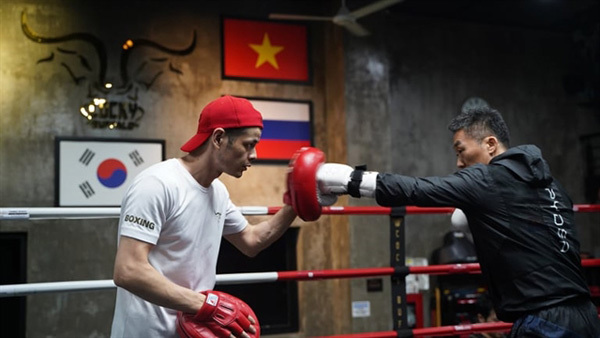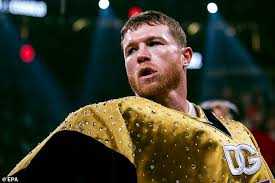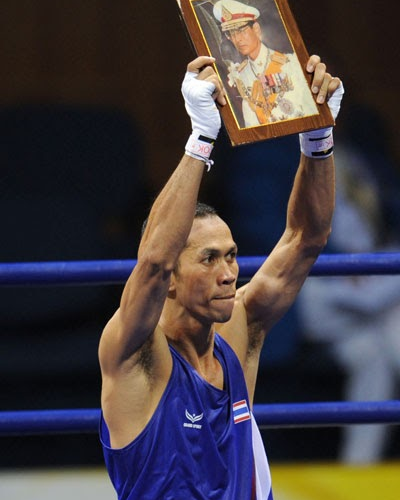
Vietnam boxing: The peak, the downfall and the rise
Vietnam boxing: The peak, the downfall and the rise
In 2021, Vietnam’s boxing history was made with the ticket by the excellent boxer: Nguyen Van Duong.
The 1996-born boxer honorably represented Vietnam as the first ‘featherweight’ boxer of the Southeast Asian country to compete at the Tokyo Olympics 2021.

Van Duong beat Australian Charlie Senior at the quarter finals of the 57 kg division qualifiers in Jordan before his sweet revenge against Chatchai Decha Butdee to become one of six qualifiers to make it through to one of the biggest stages, the Olympics. Van Duong lost to the Thai boxer in the SEA Games final in 2020, but this time, he needed less than 60 seconds to accomplish the revenge.
It was not only an individual achievement for Van Duong, but also a milestone set for the country which boxing had gone through all levels of ups and downs. 32 years passed since the last time Vietnam has a representative at the Olympics. The country’s boxing once peaked, then fell to the bottom before rising with Van Duong’s achievement.
Let’s take a look at Vietnam’s boxing history.
Once upon a time, Boxing matched Football’s popularity in Vietnam
In the 20s, Boxing was imported to Vietnam and immediately made an impact. It was a sport that attracted audiences at the same levels as Football – the King of Sports.
Boxers were treated as international super stars and earned respects from people from all Vietnam. Rings were everywhere and always were full with attendances, even during the War time against the U.S.A.

The miraculous Olympic achievement in 1988 marked the peak of Vietnam’s boxing. In the 1988 Seoul Olympic, Đỗ Tiến Tuấn (69kg division) and Đặng Hiếu Hiền (48kg division) made history when they qualified for a trip to South Korea.
Tạ Quang was another big name as he won Bronze medal at the 1989 SEA games for Vietnam’s boxing.
But things went from great to dark for Vietnam’s boxing. In 1994, the National Championship was held in Hải Phòng, where the notorious scandal of boxing history took place. Brawls broke out as the participants caused chaos during one match.
The incident caused serious consequences, as the Sports Administrator handed a ban on all boxing activities, until further notice.
Boxing was considered ‘dead’ for 8 years, before the ban was lifted in 2002. The sport quickly earned its worthy status with the Gold medal at SEA Games by Lương Văn Toản (81kg division) in 2011. In addition, was the Gold medal in Asian Championship in 2017 and Bronze medal in World Championship in 2019.
It was a new era of boxing for Vietnam.
The legend Muhammad Ali and the fight against Vietnam’s war
What happened inside the court on that decision was almost as dramatic as watching Ali box.
The year was 1967, when the legendary had one of his greatest fights in his life, and eventually came home with victory.

The Vietnam War was raging at that time. Protesters were everywhere, burning draft cards and conscientious were fleeing to Canada. Muhammad Ali was no different, as he decided to become a conscientious objector, which was later on praised by the famous Rev. Martin Luther King Jr.
This was the exact quote from Ali when he opposed joining the army and avoided the killing in Vietnam?
“My conscience won’t let me go shoot my brother, or some darker people, or some poor hungry people in the mud for big powerful America,” he had explained two years earlier. “And shoot them for what? They never called me nigger, they never lynched me, they didn’t put no dogs on me, they didn’t rob me of my nationality, rape and kill my mother and father. … Shoot them for what? How can I shoot poor people? Just take me to jail.”

The righteous decision, however, cost Ali his boxing license and fined $10,000, after the the conviction of felony charge of violating the Universal Military Training and Service Act. He was also sentenced to 5 years in prison.
Ali and his attorneys would spend the next four years appealing that verdict, in the meantime, he became an antiwar and civil rights hero as the Vietnam War became increasingly popular.
And Ali and his entourage’s effort were well paid off, as in 1971, the U.S Supremer Court unanimously overturned Ali’s conviction. This magnificent victory could not have happened, if it was not for Justice John Harlan, who believed that Ali was a true conscientious objector and opposed war.
After the conviction was overturned, Ali made his comeback in amazing fashion, defeated Joe Frazier in January 1974, before challenged and beat George Foreman – the reigning heavy weight champion, by knock-out.

The rise and the future of Vietnam’s boxing
As aforementioned in the intro, Nguyen Van Duong set a milestone as he represented Vietnam at the Olympics. Dang Hieu Hien was the very first Vietnamese boxer to compete in the light flyweight division at the 1988 Olympics in Seul, South Korea. Hieu Hien lost in the 3rd round to eventual silver medalist Micheal Carbaial of the United States. Vietnam had four participants vying for an Olympic berth, two men and two women, but only Duong made it through.
The Bac Ninh-born boxer set another milestone as he went to the round of 16 after defeating
However, the journey ended for Van Duong as he lost to World’s ranking top 4 and number 1 Mongolia’s Erdenebatyn Tsendbaatar, 0-5. The result was written before it started, because the Mongolian was on another level with handful of medals (Bronze in World Championship 2019, Gold in ASIA 2018- and two-times Asian’s light-weight champion in 2019 and 2021).

But it was a promising sign, fo the presence and future of Vietnam’s boxing.
The S-shape country has seen some impressive improvements for boxing. Van Duong’s success was unexpected, but it was proof of the progress with rightful investment.
Since 2015, this sport has started to rise in SEA Games, such as Female’s boxers like Lê Thị Bằng, Nguyễn Thị Yến (2015), Nguyễn Thị Tâm (2017) and the one and only Trương Đình Hoàng who was the rare male boxer wining gold in the regional competition.

The process of socializing sports played a key element, with the strong hands from private entrepreneurs.
Once the fund has been topped, the quality would considerably improve. Van Duong was the perfect figure as the General Department of Sports and Physical Training joined hands with the VSP Boxing – a private unit, to train and brought to the lights.
From this stage, Vietnam’s boxing hopes to climb back to the peak where it stood decades ago.




